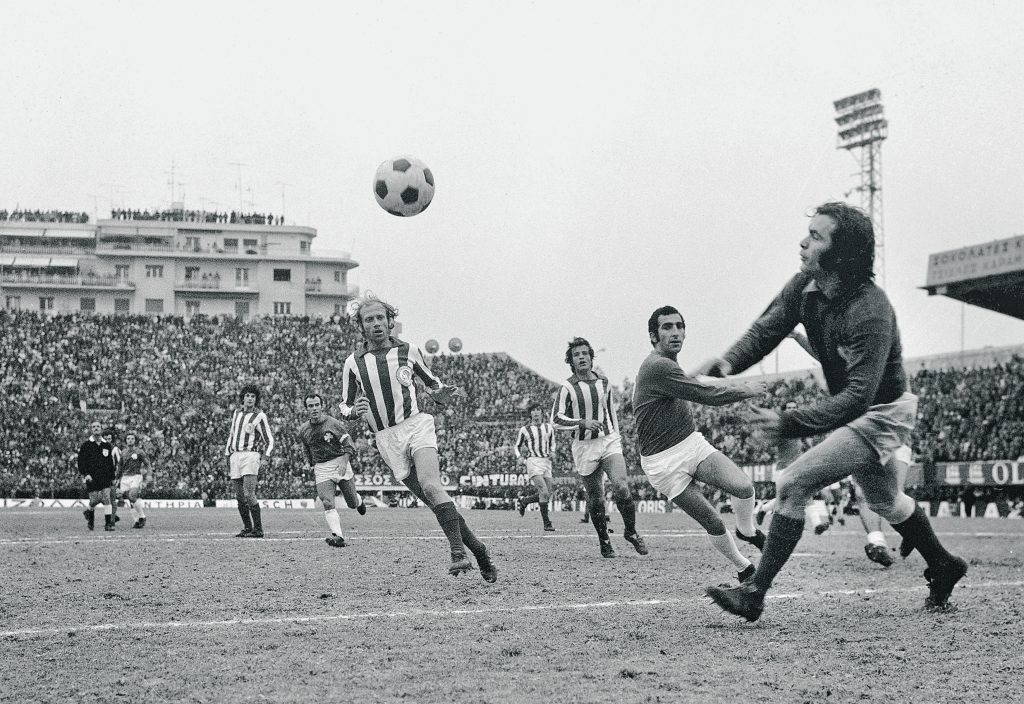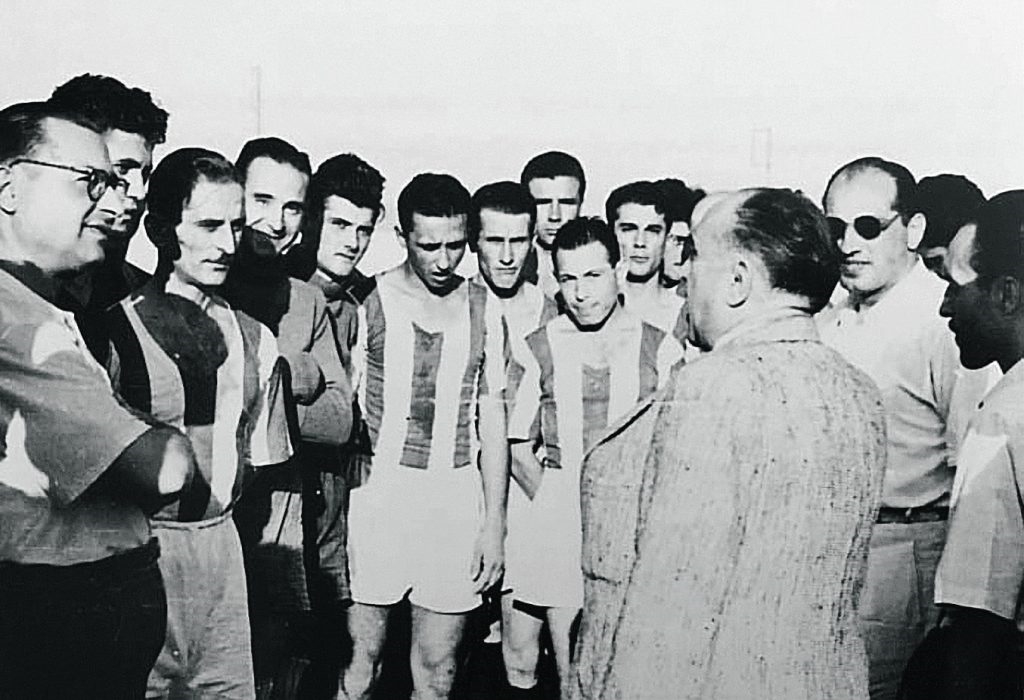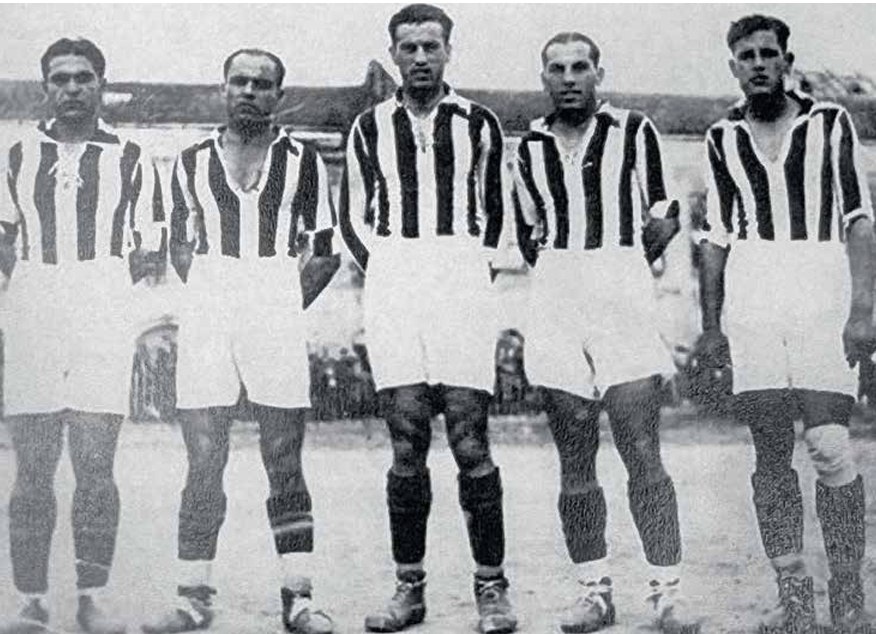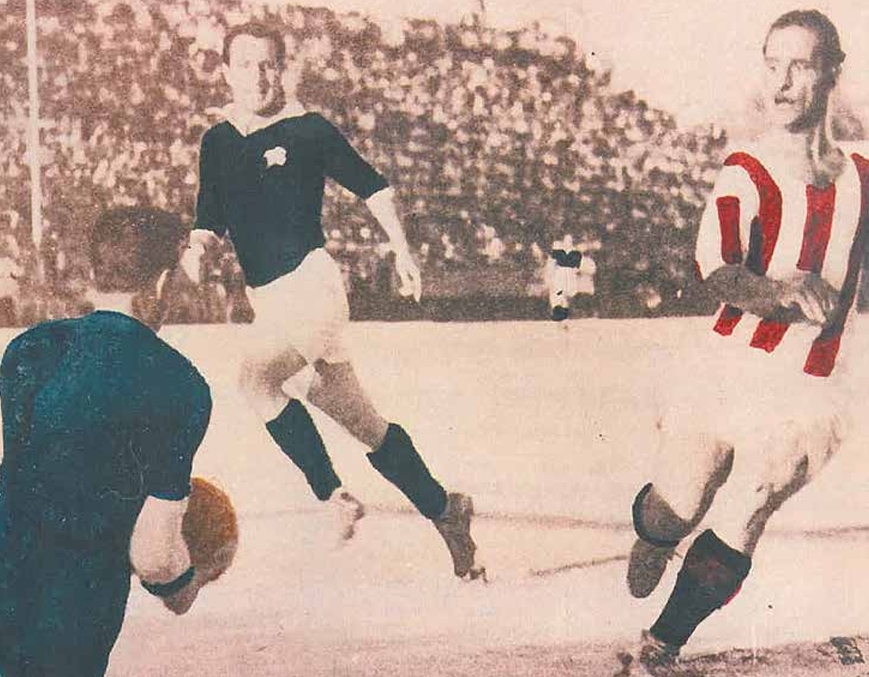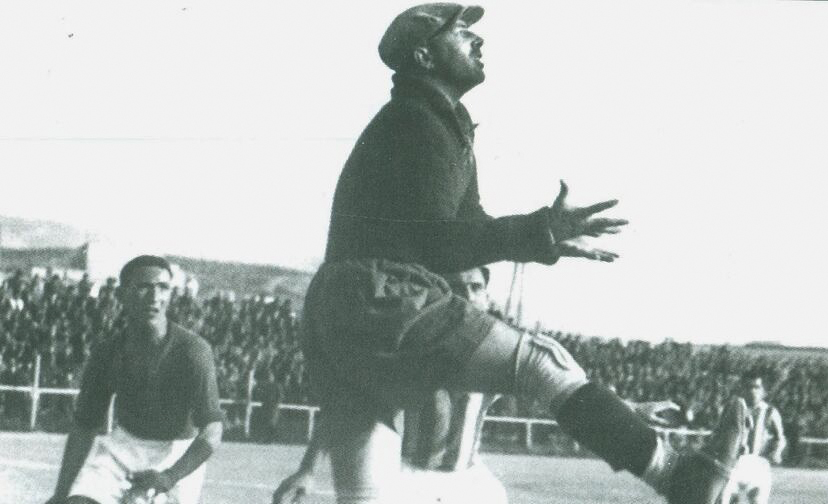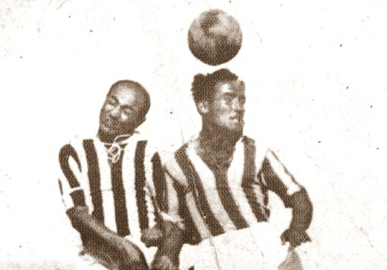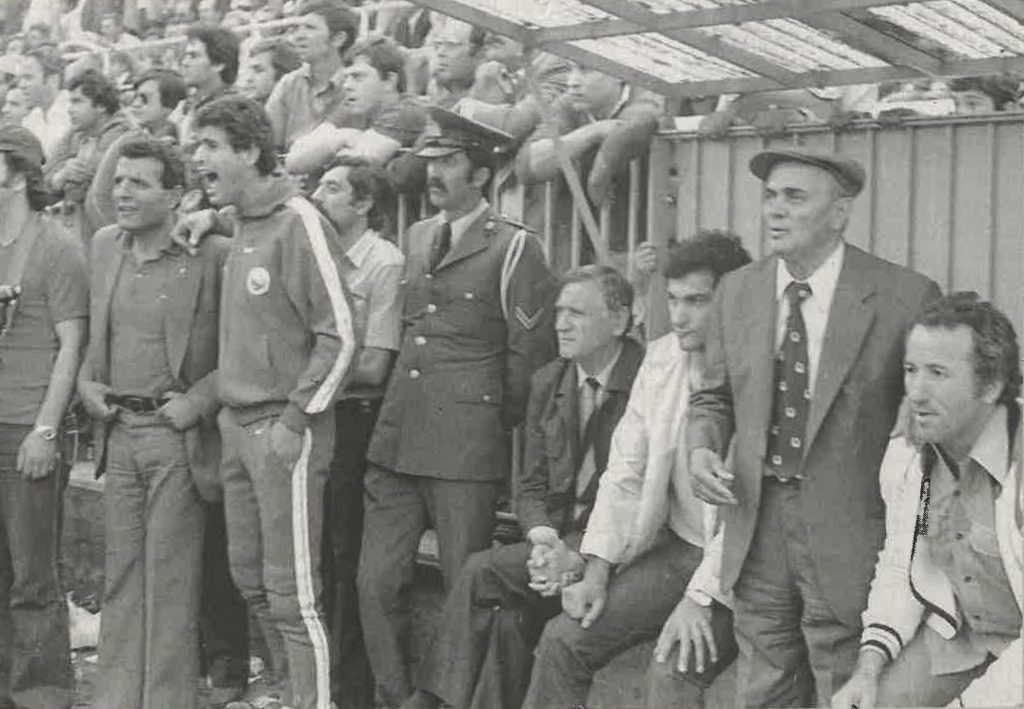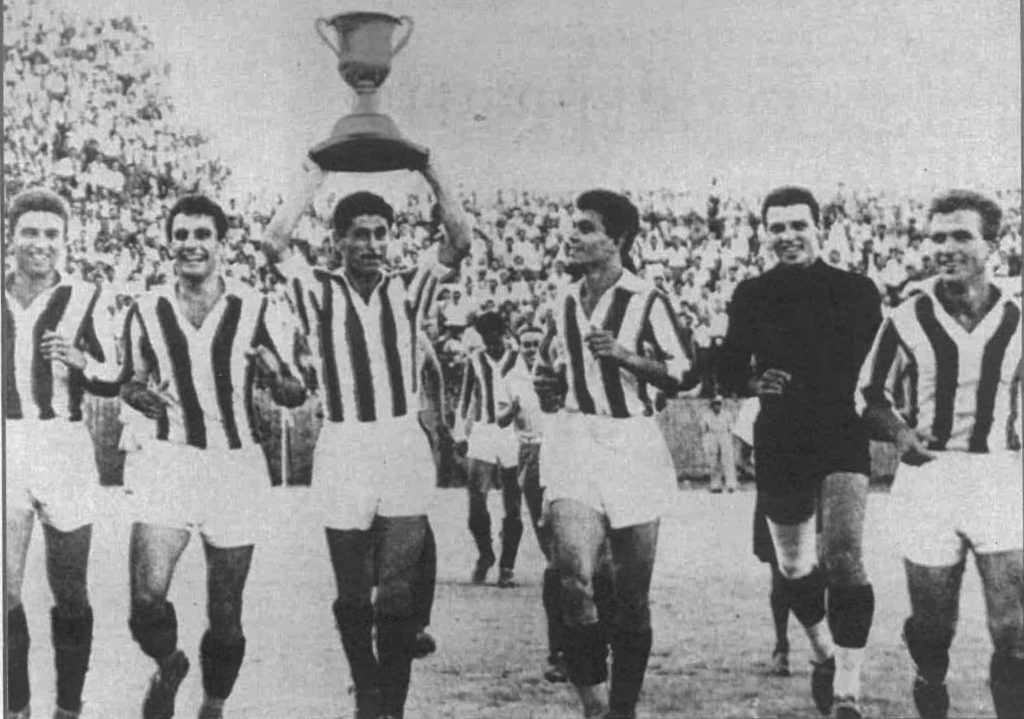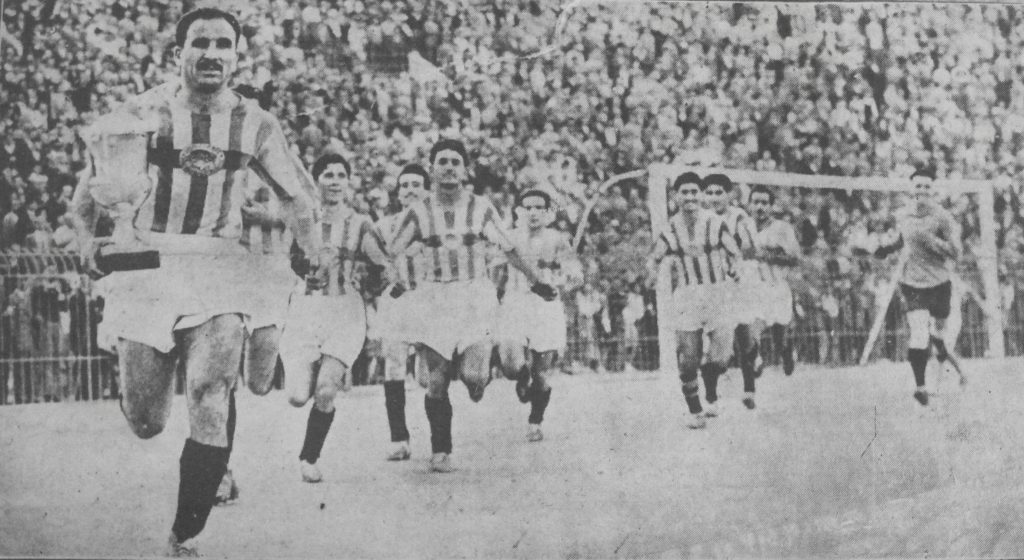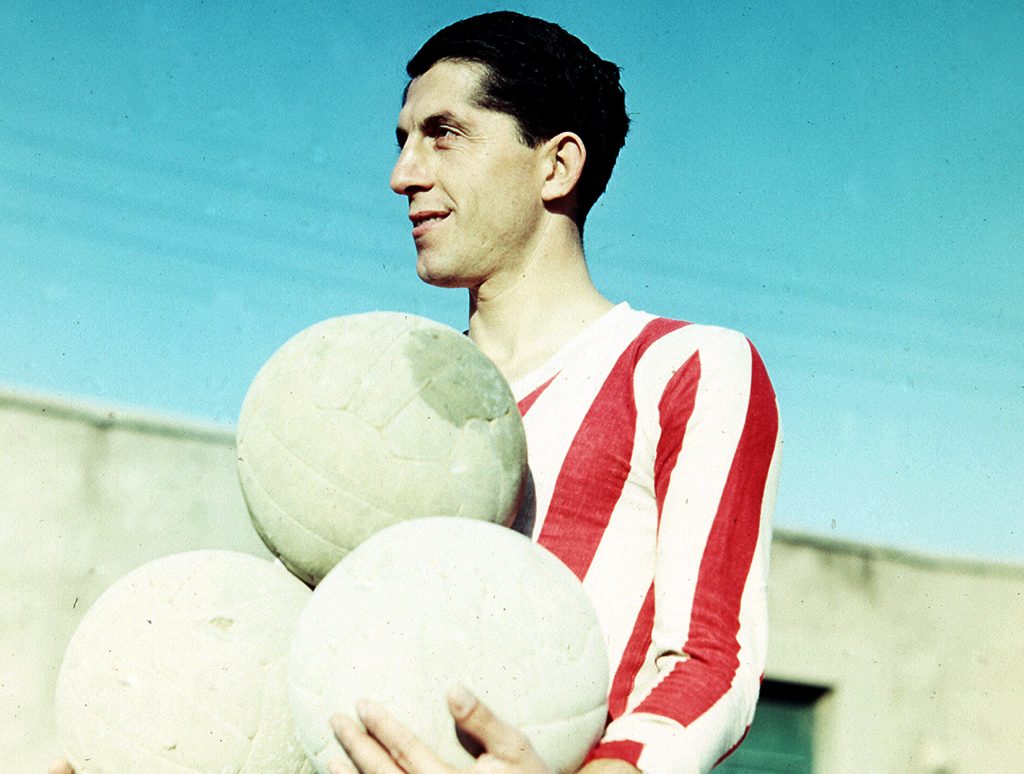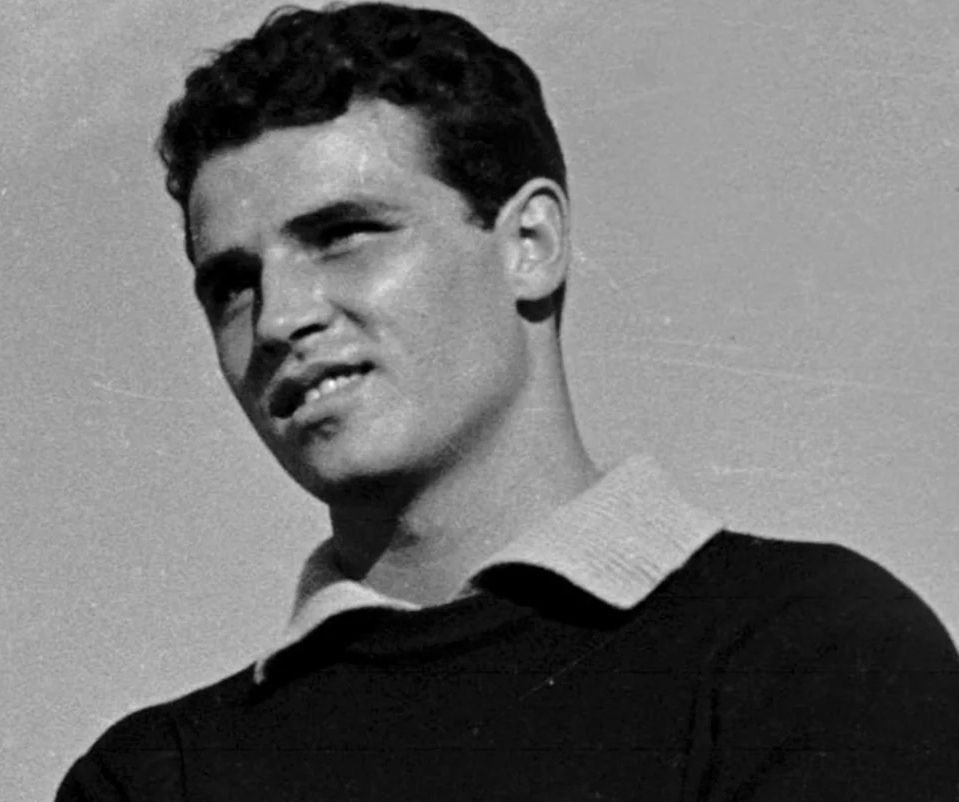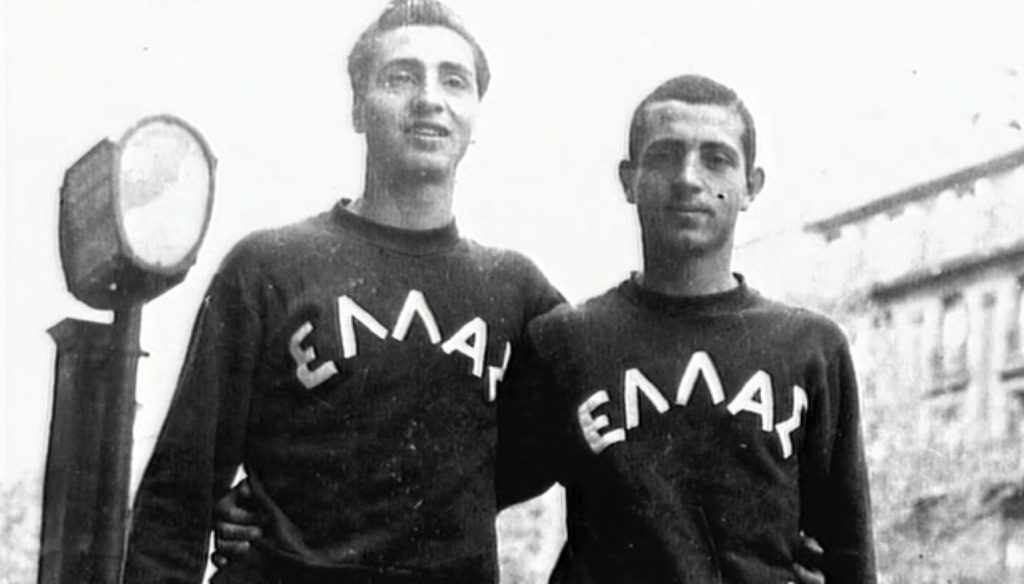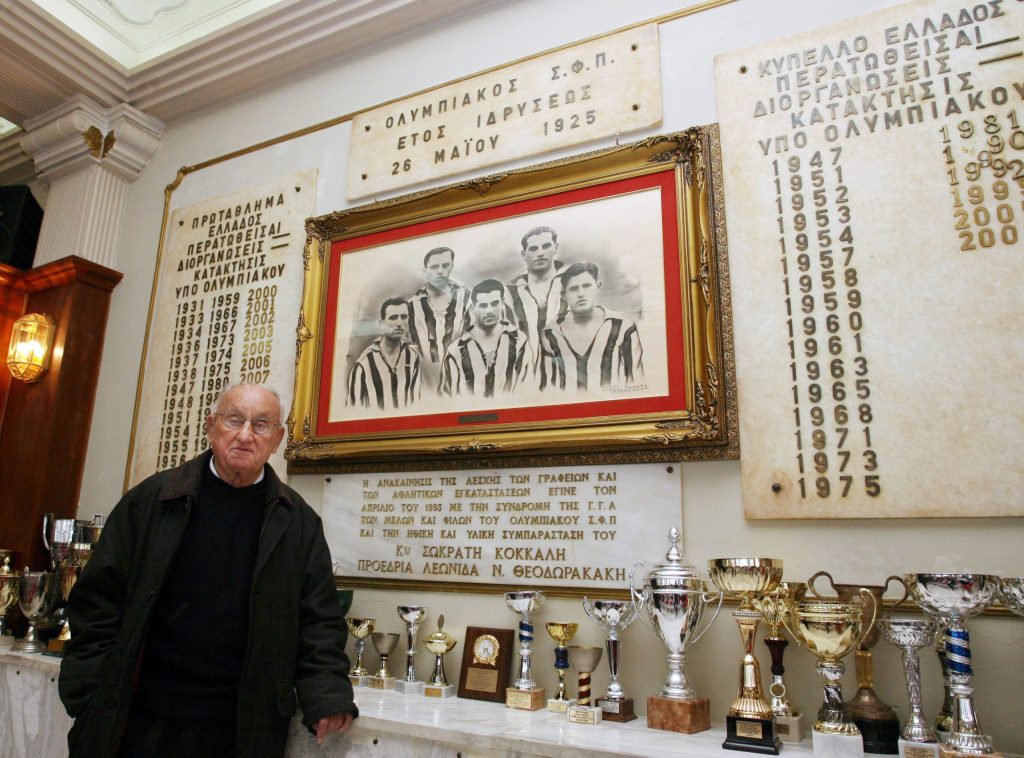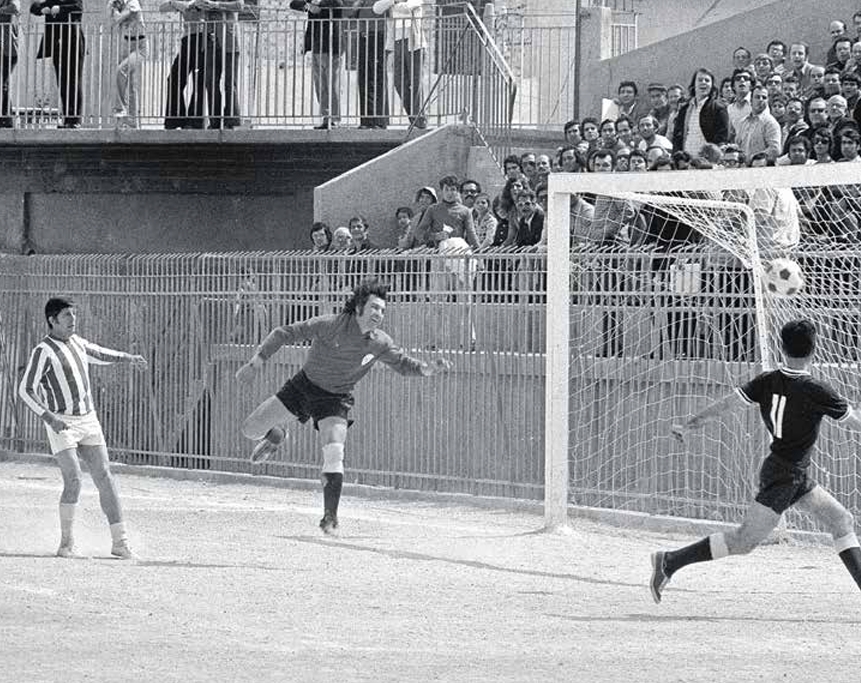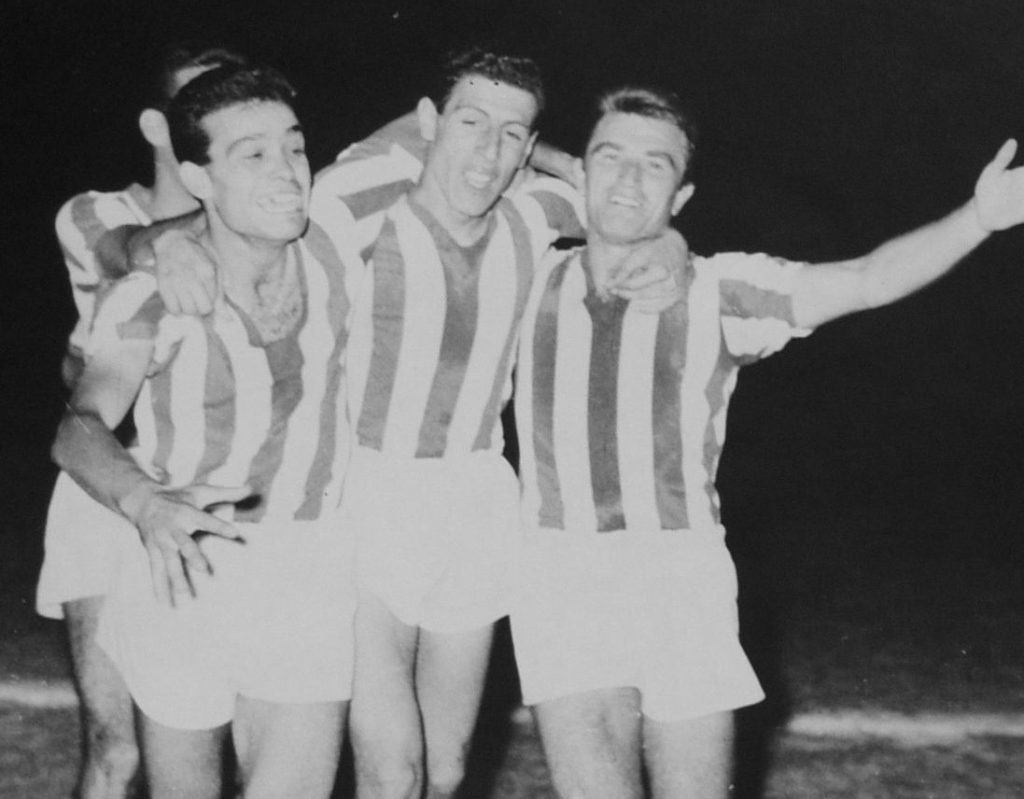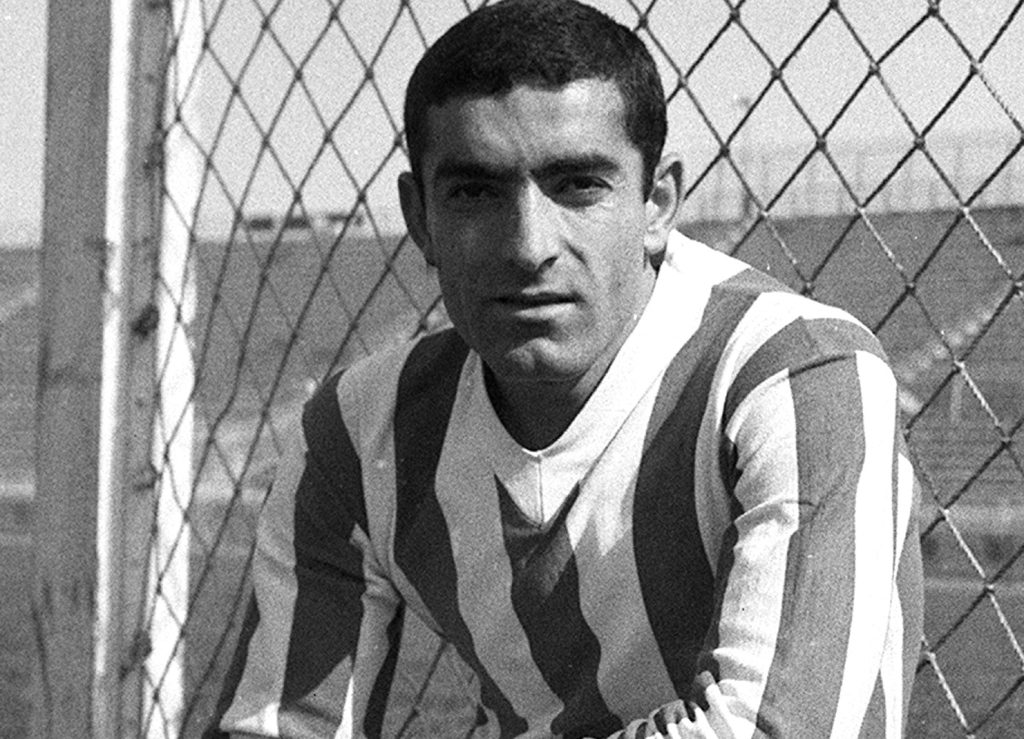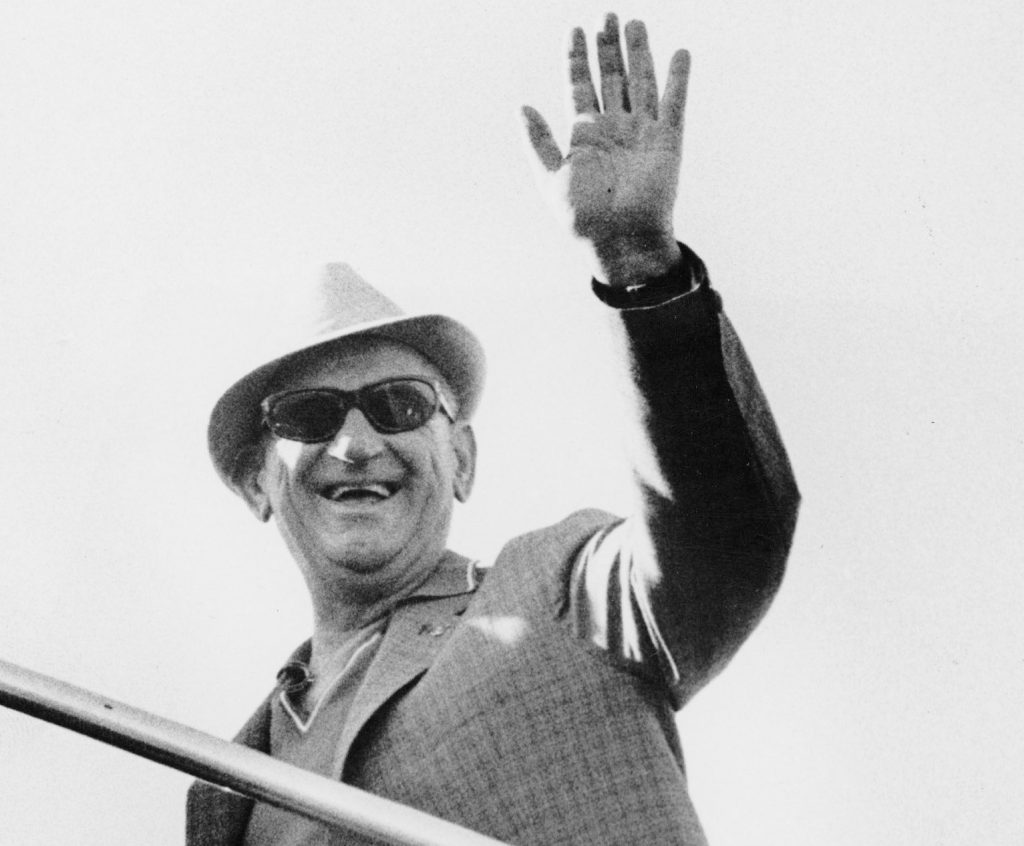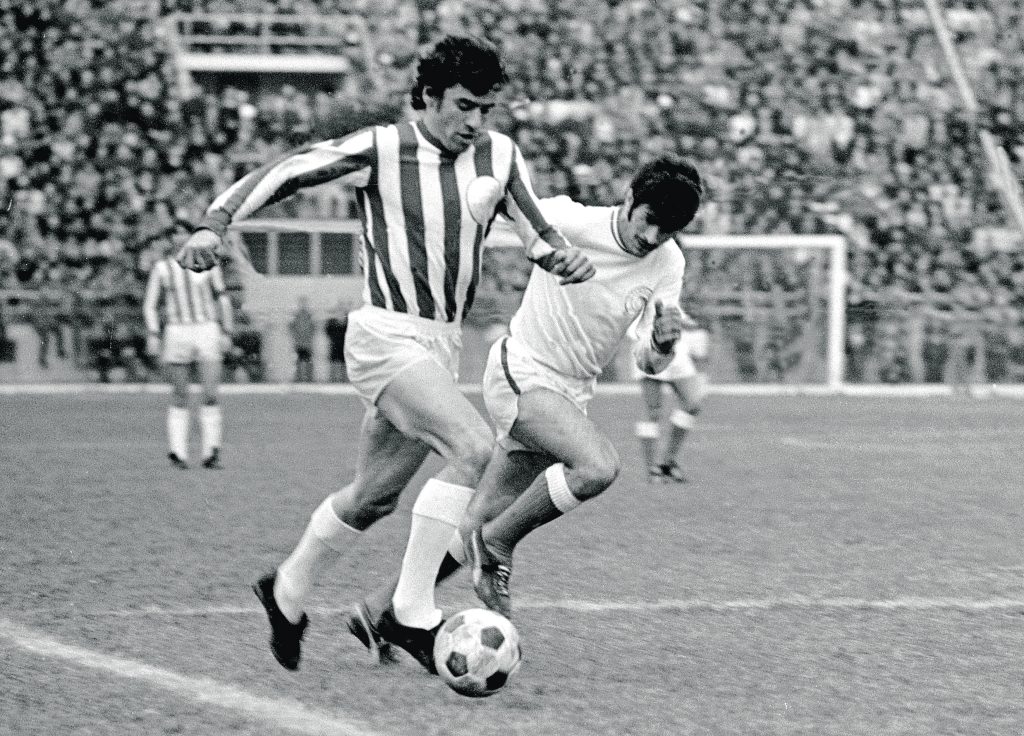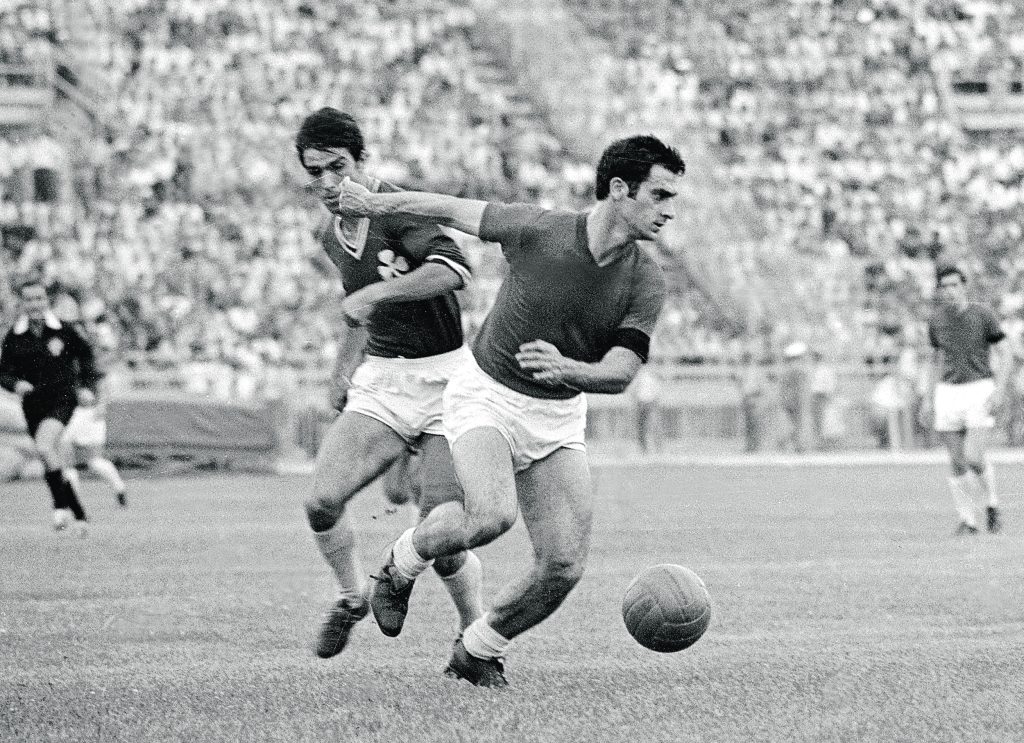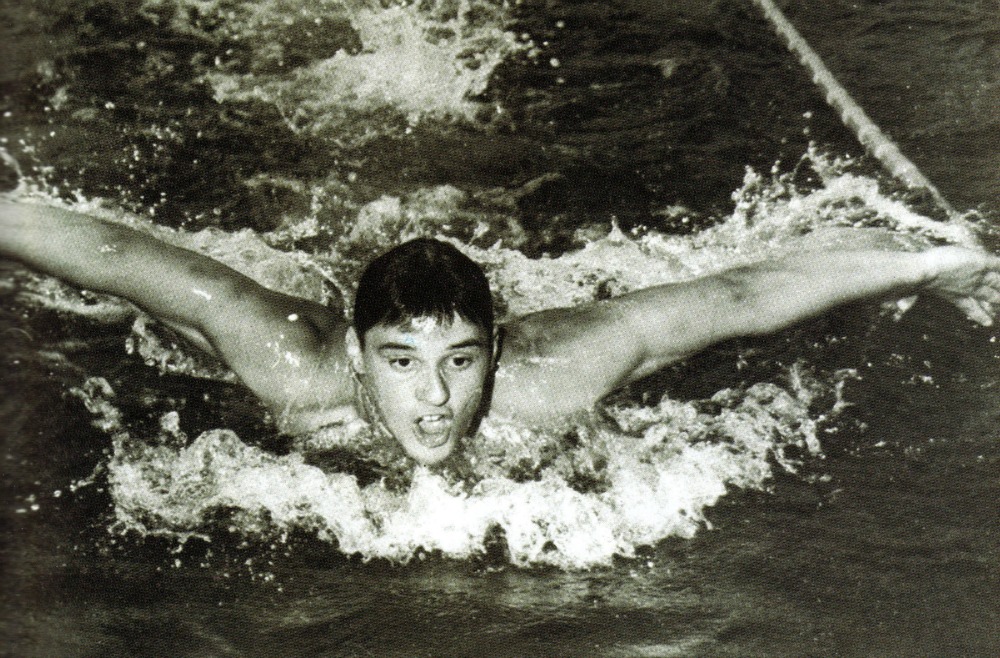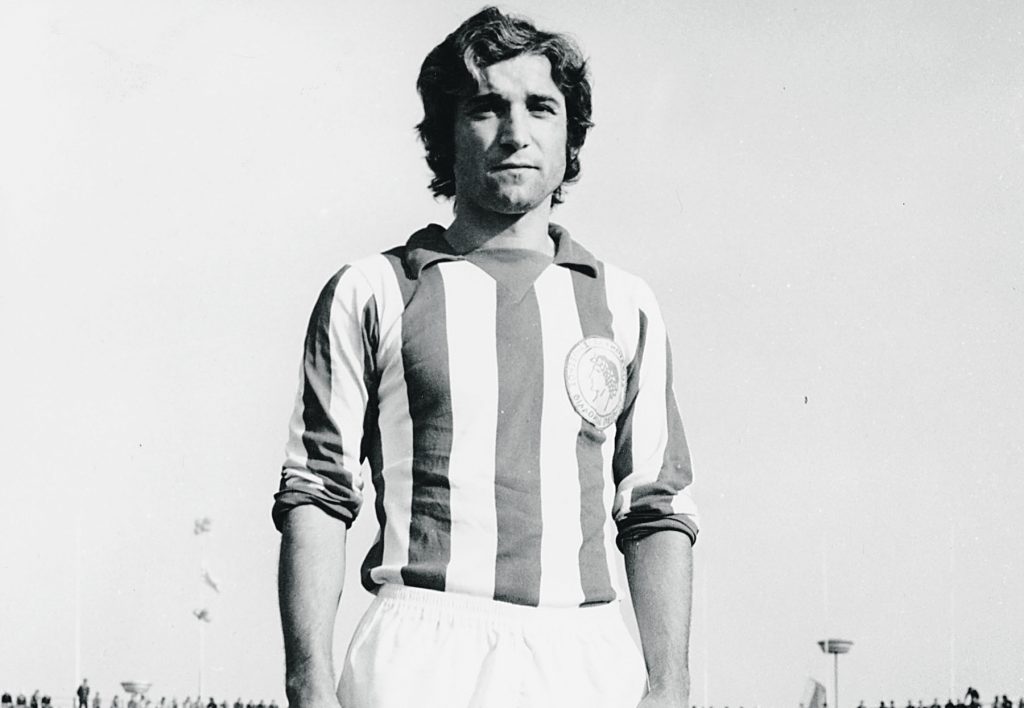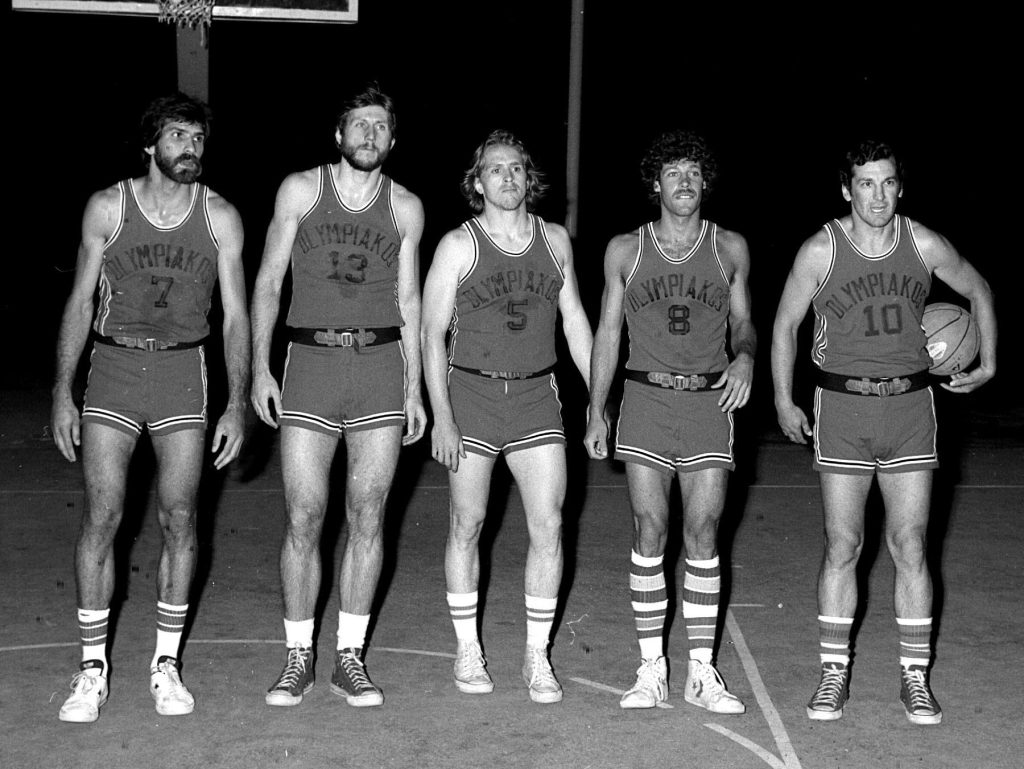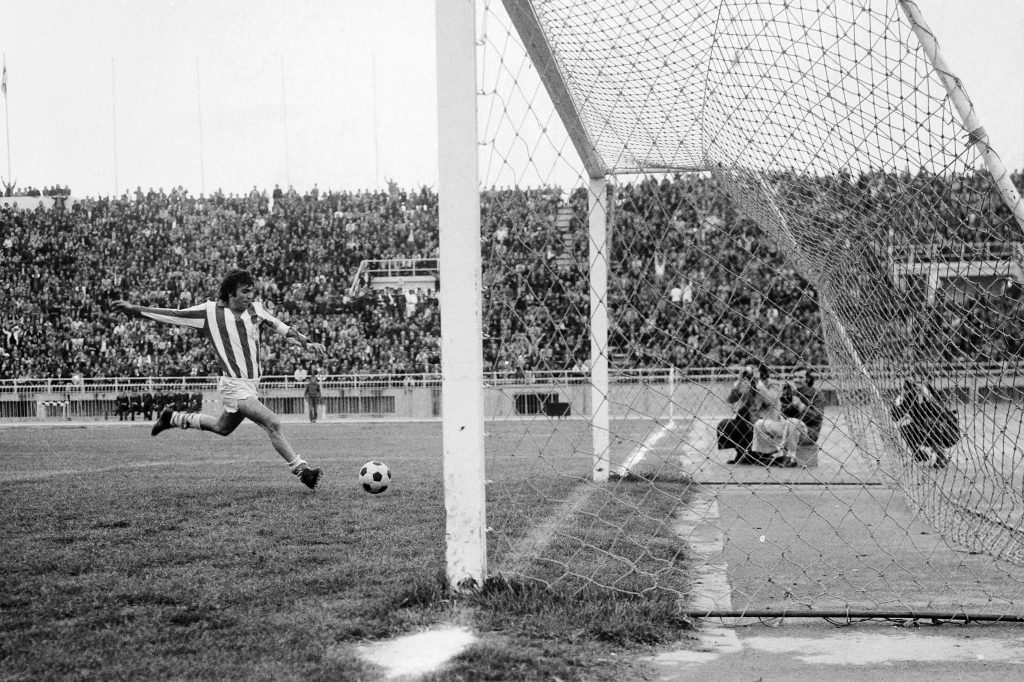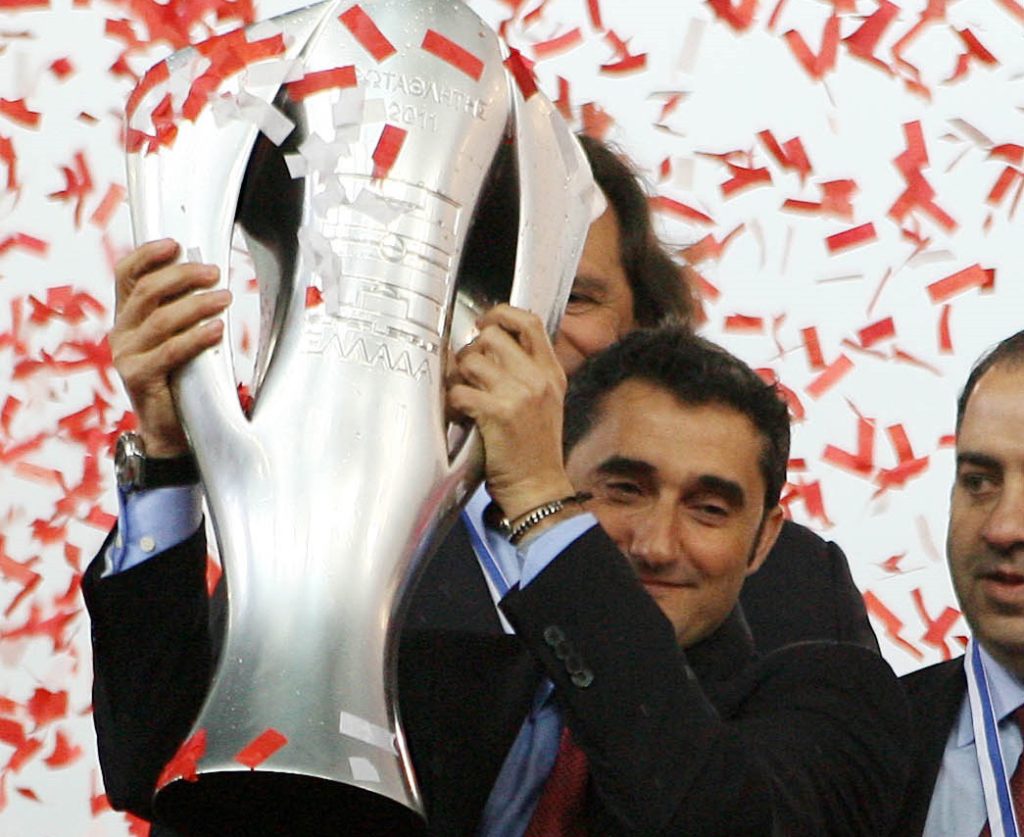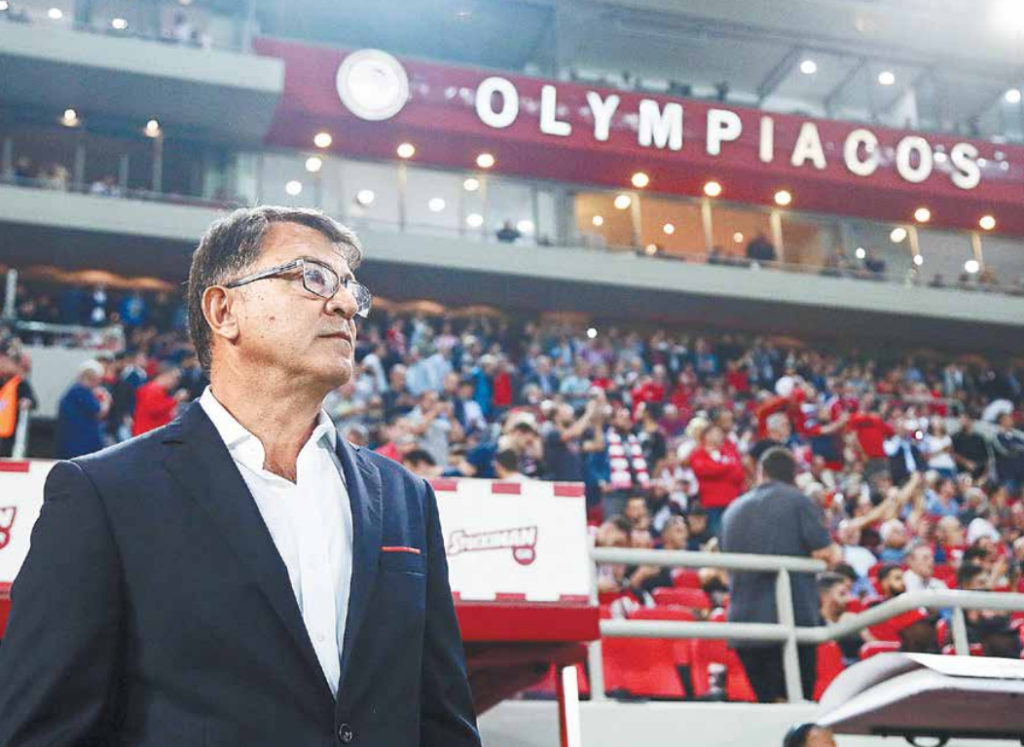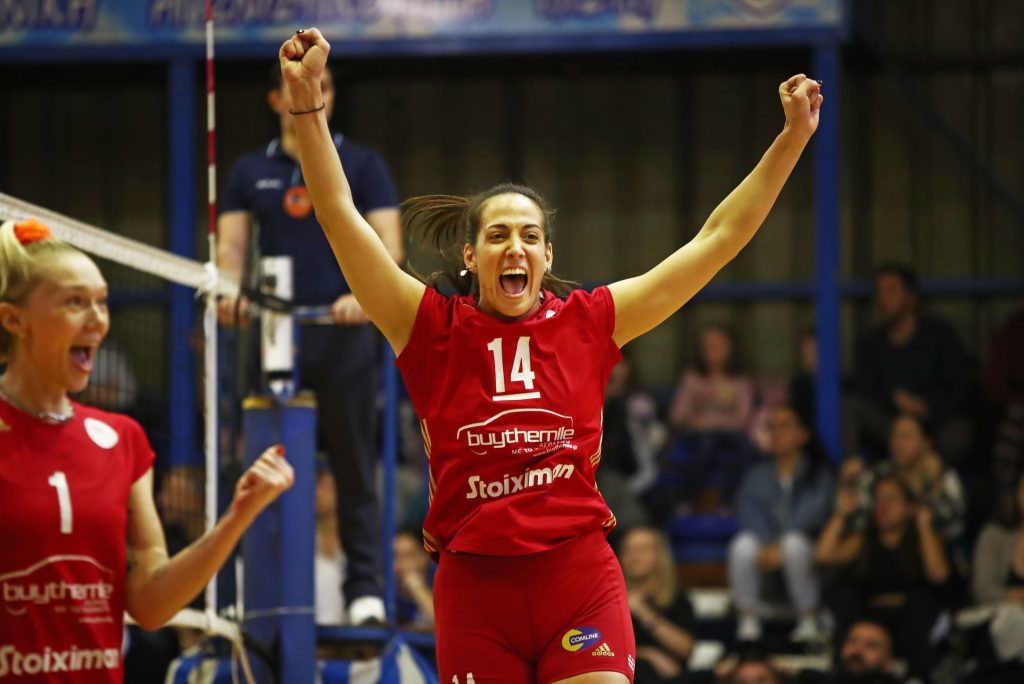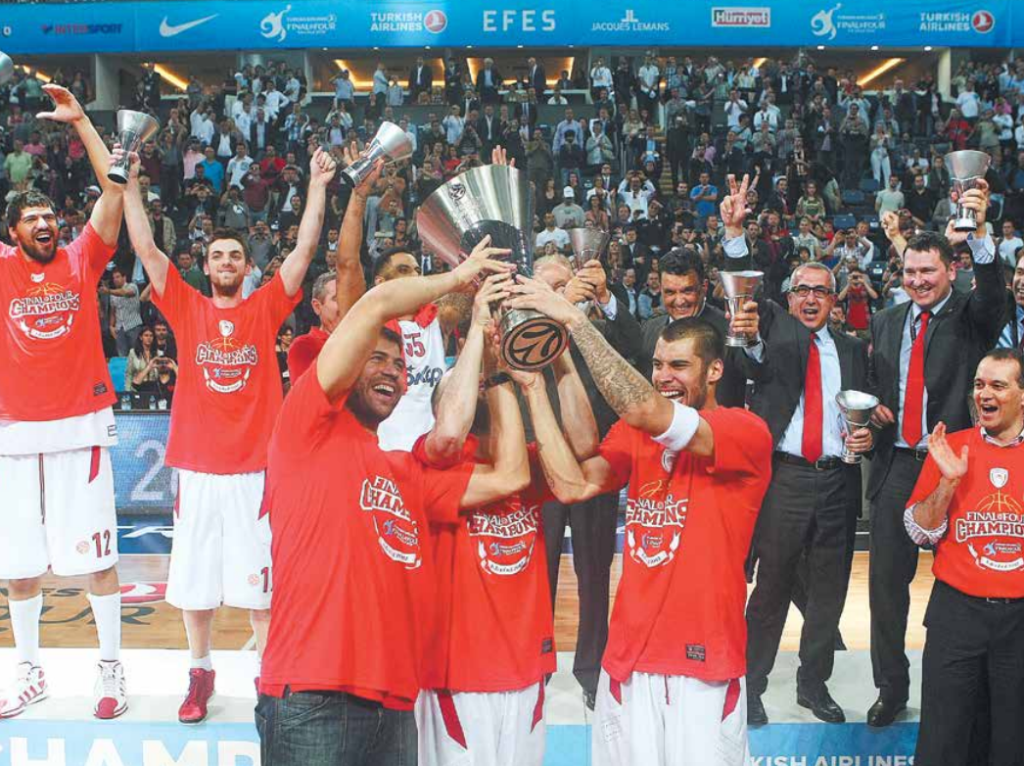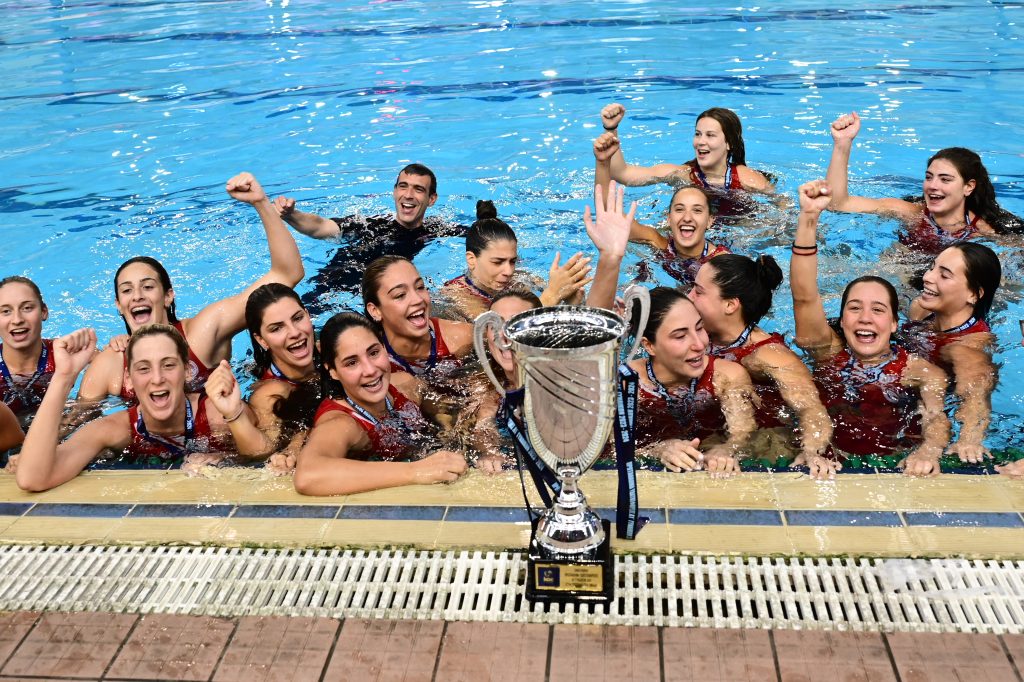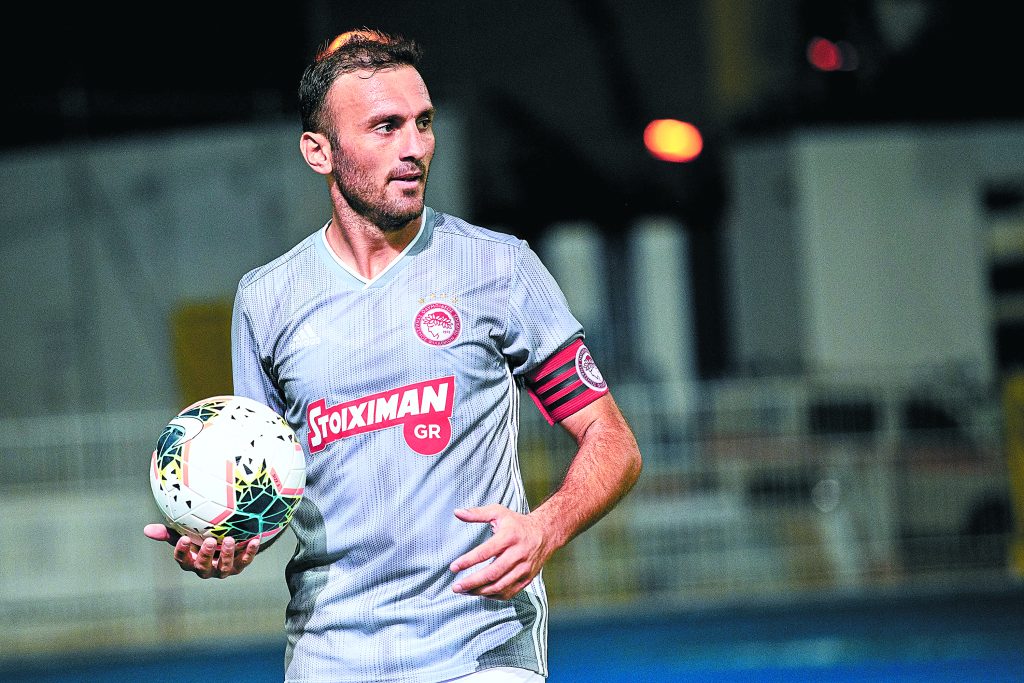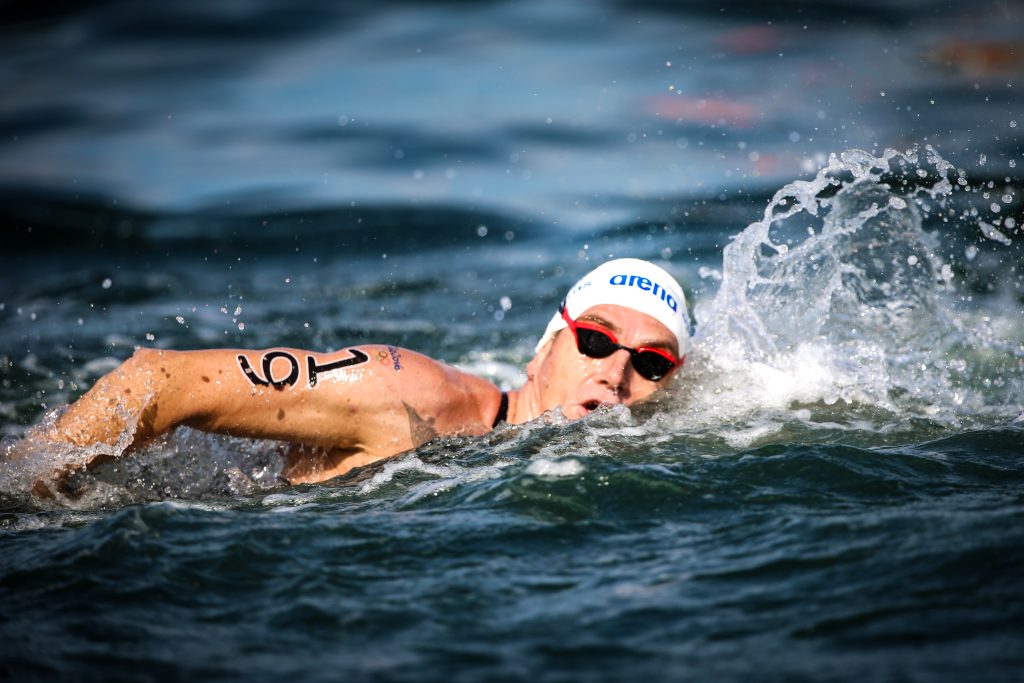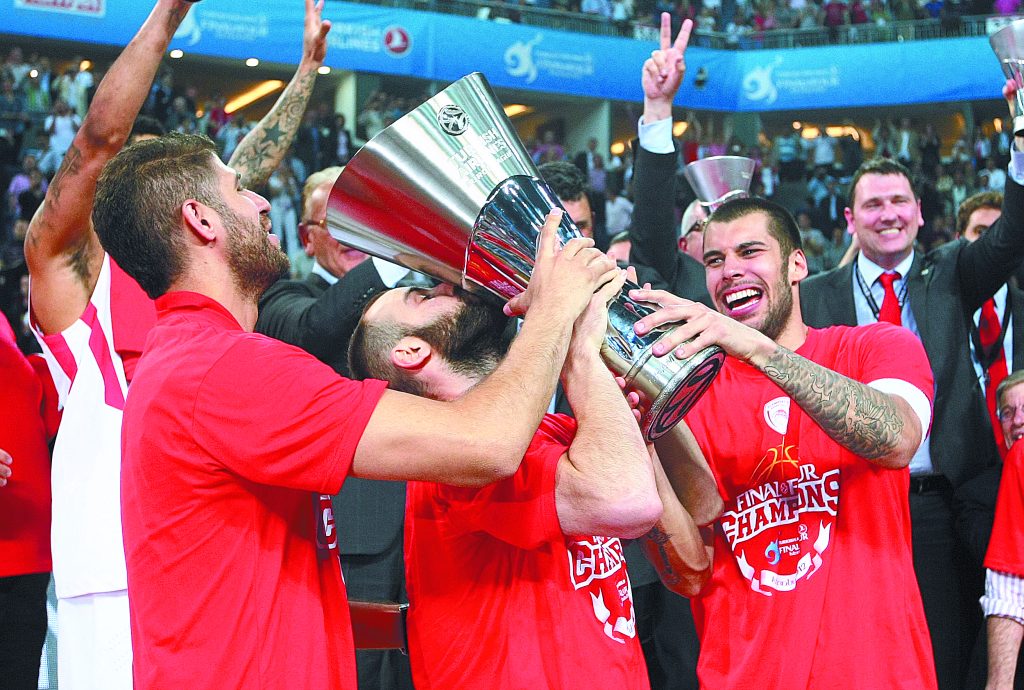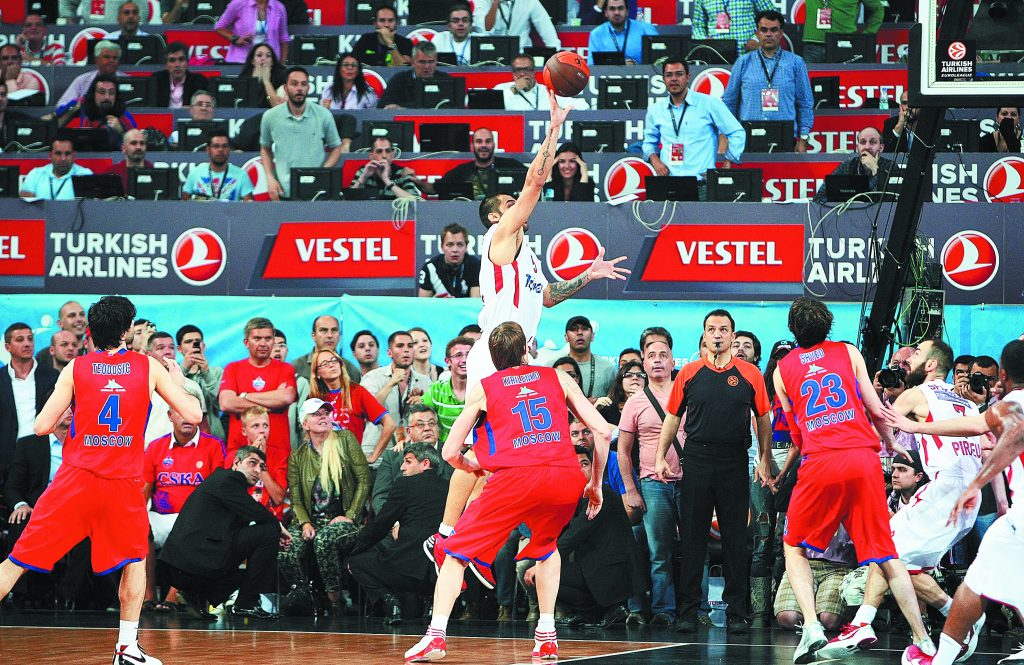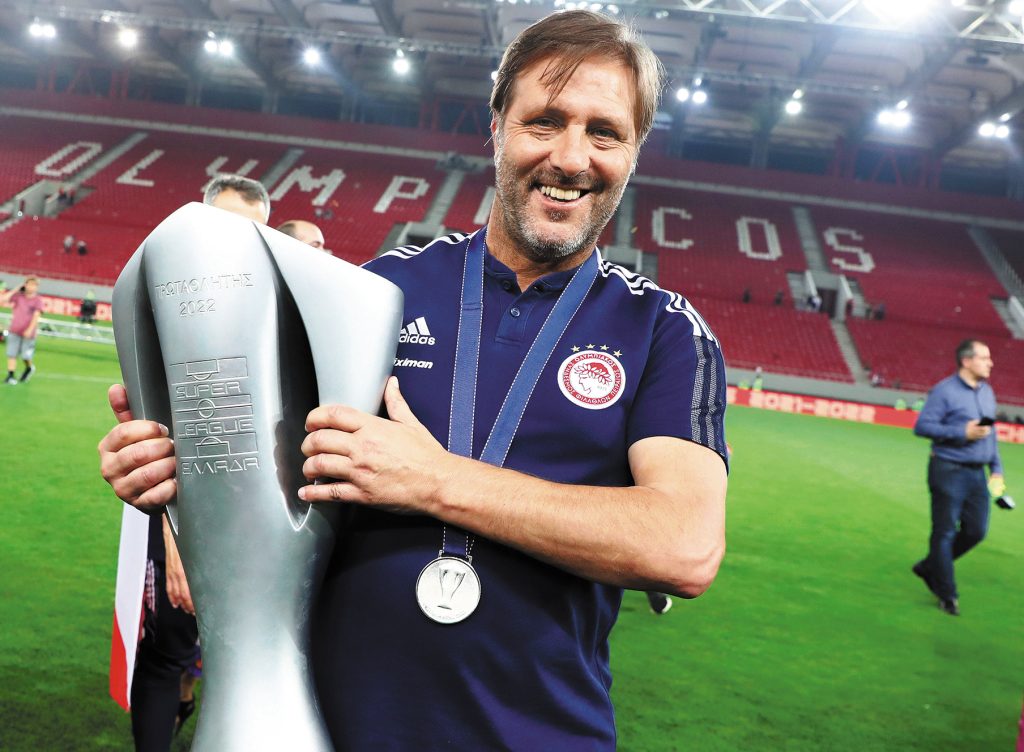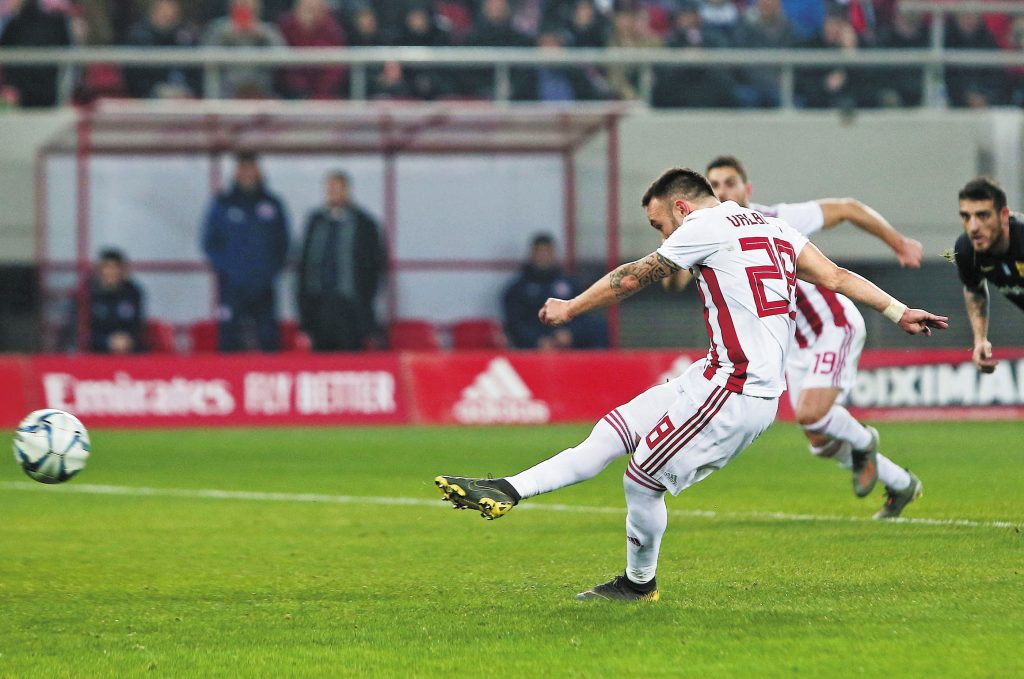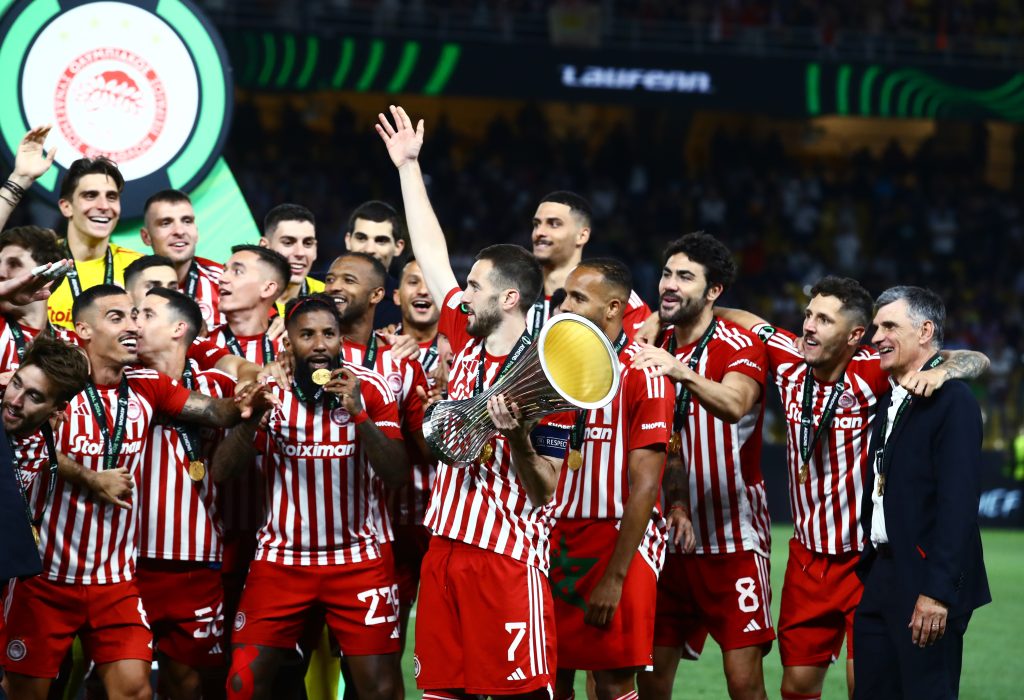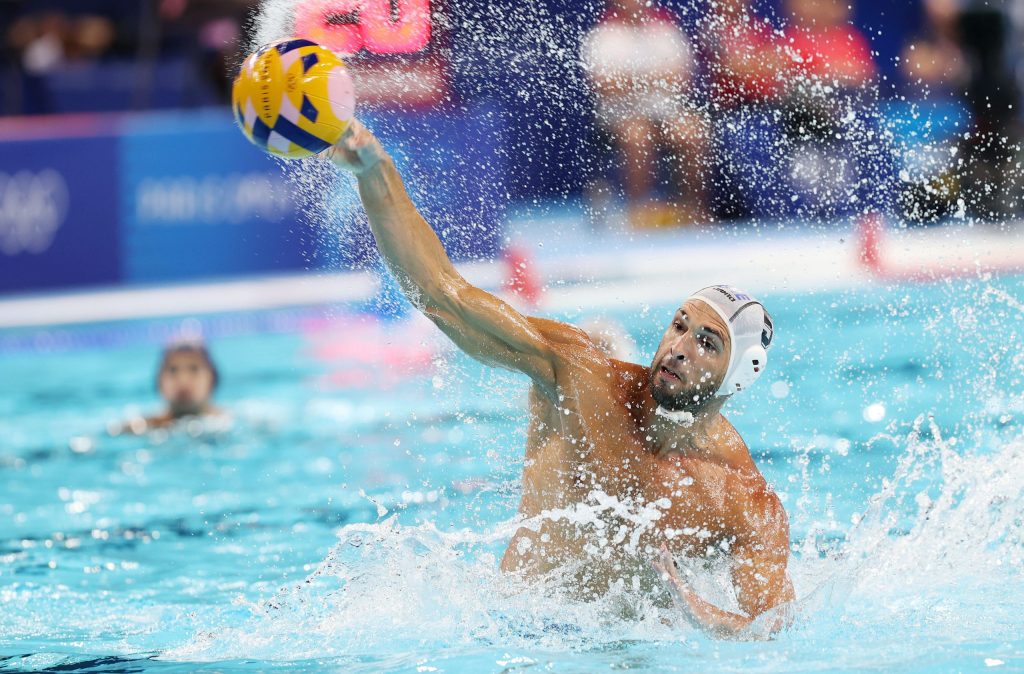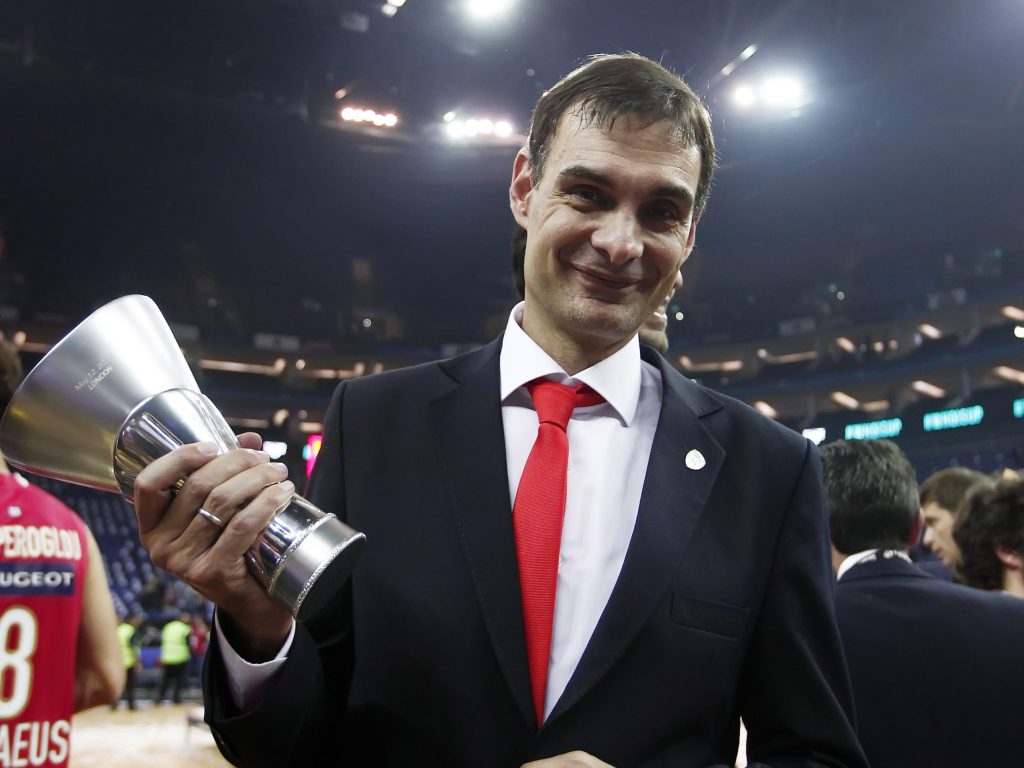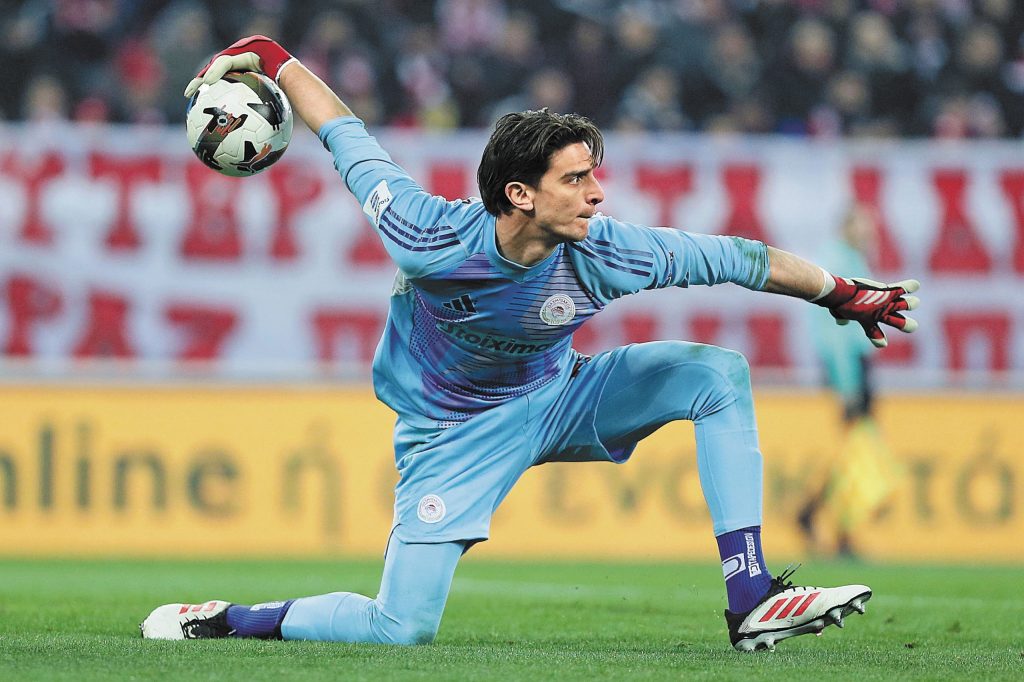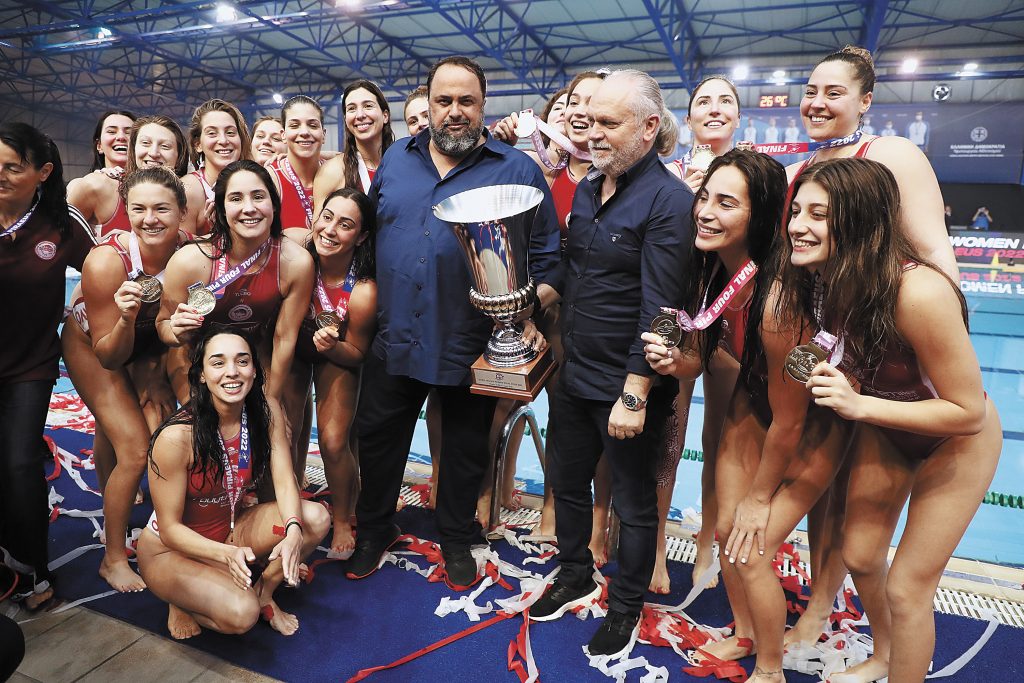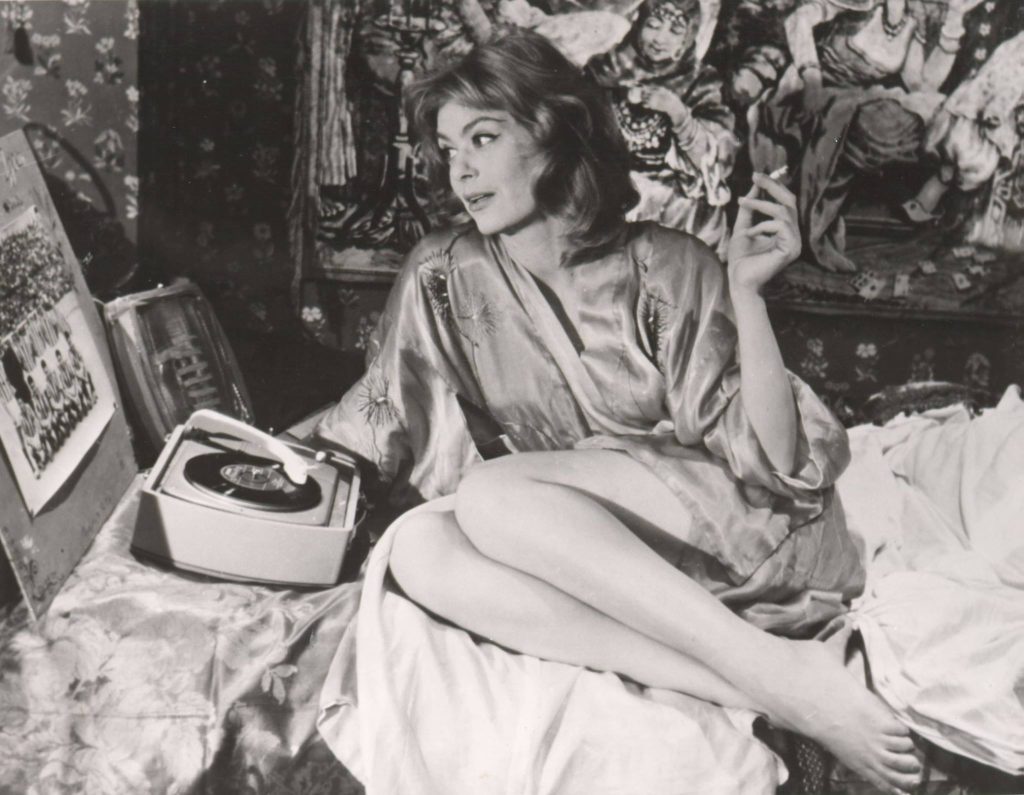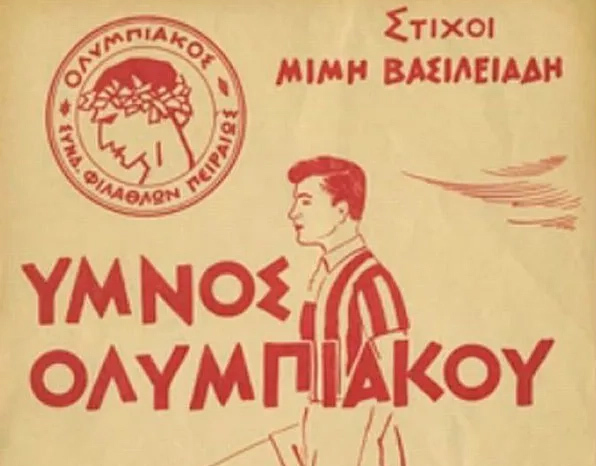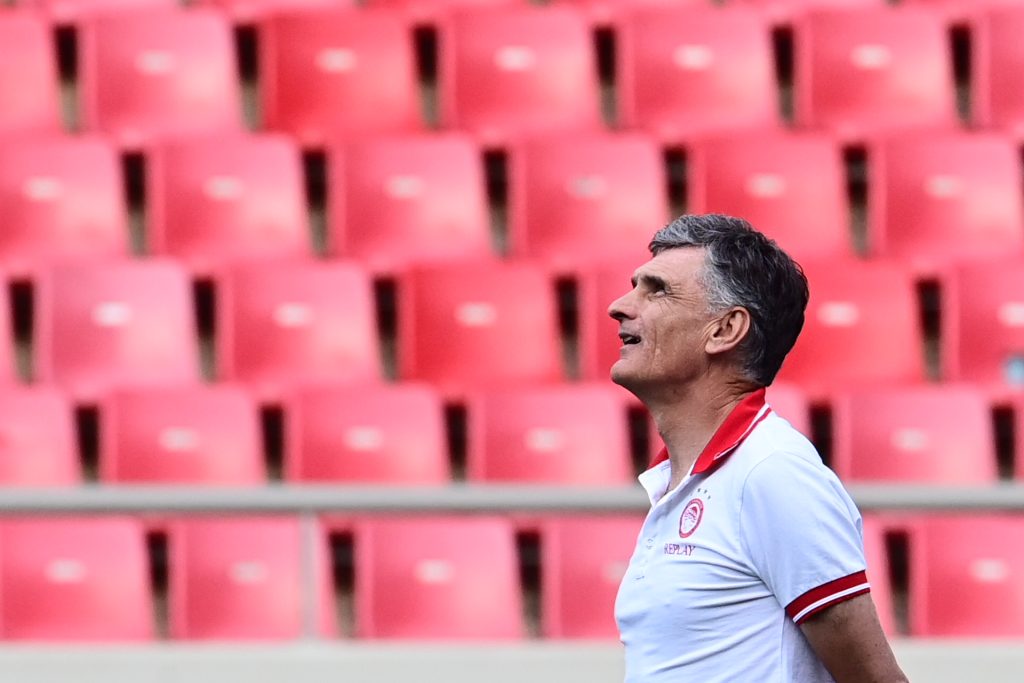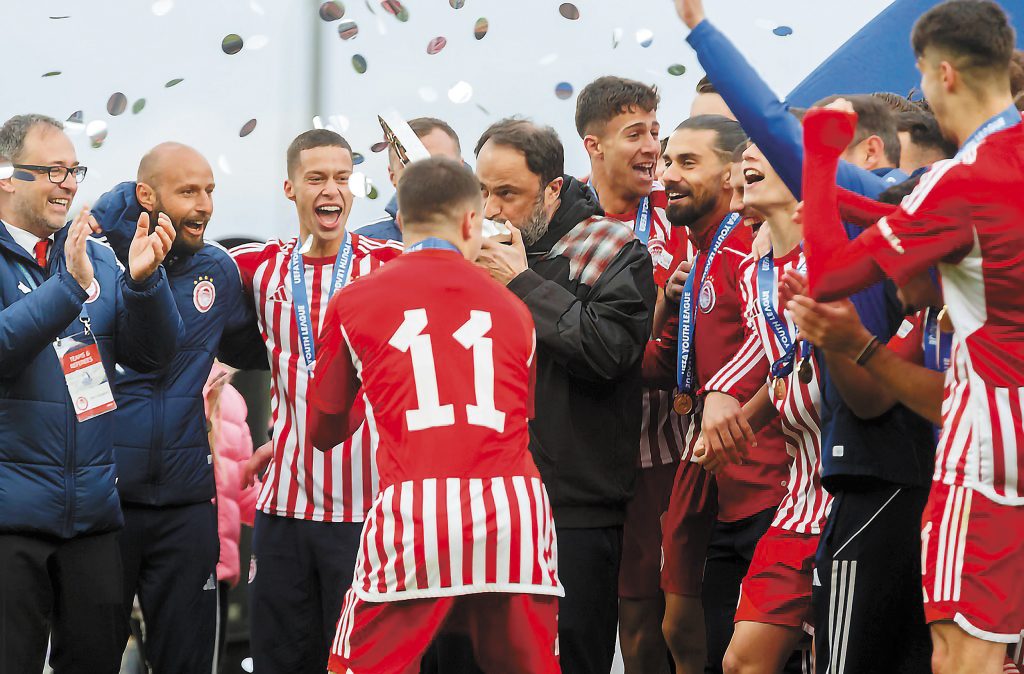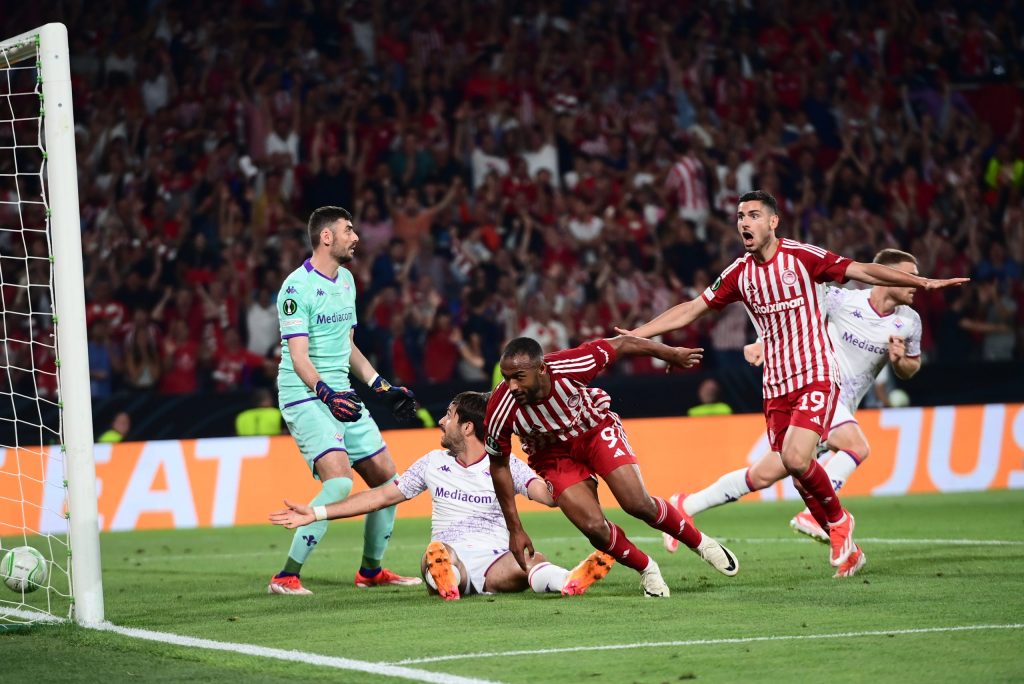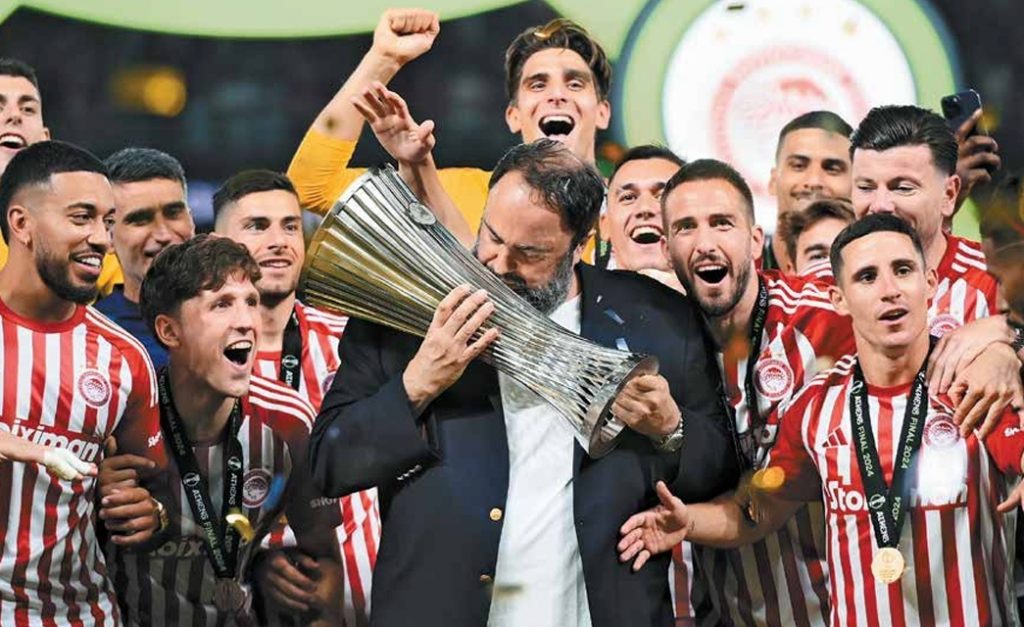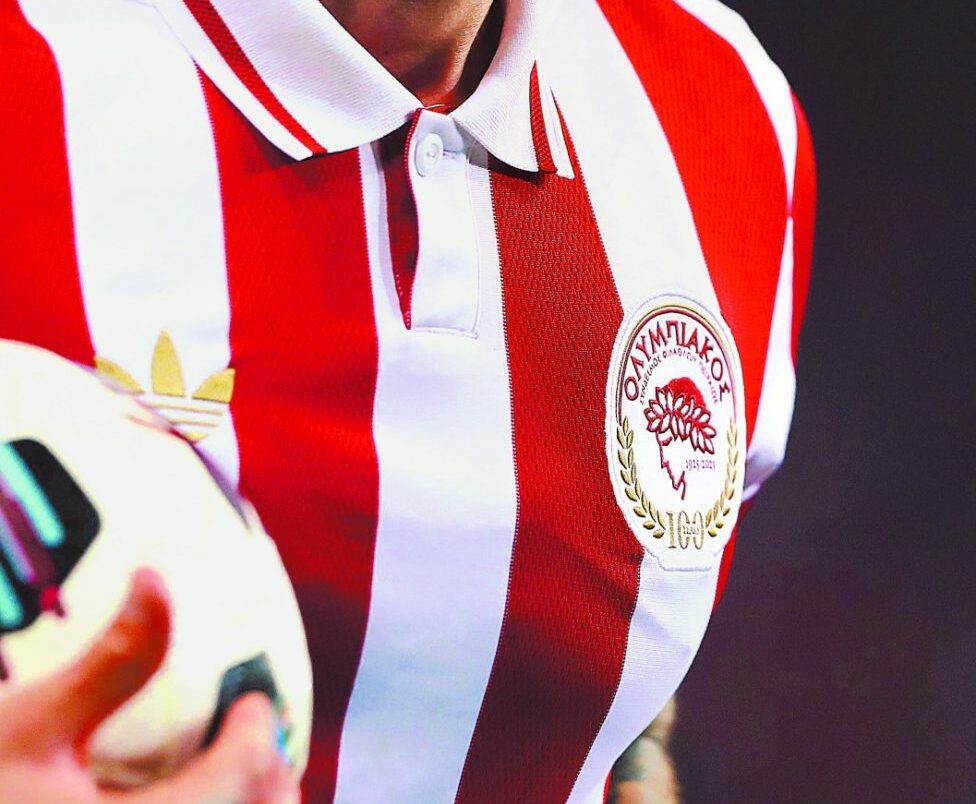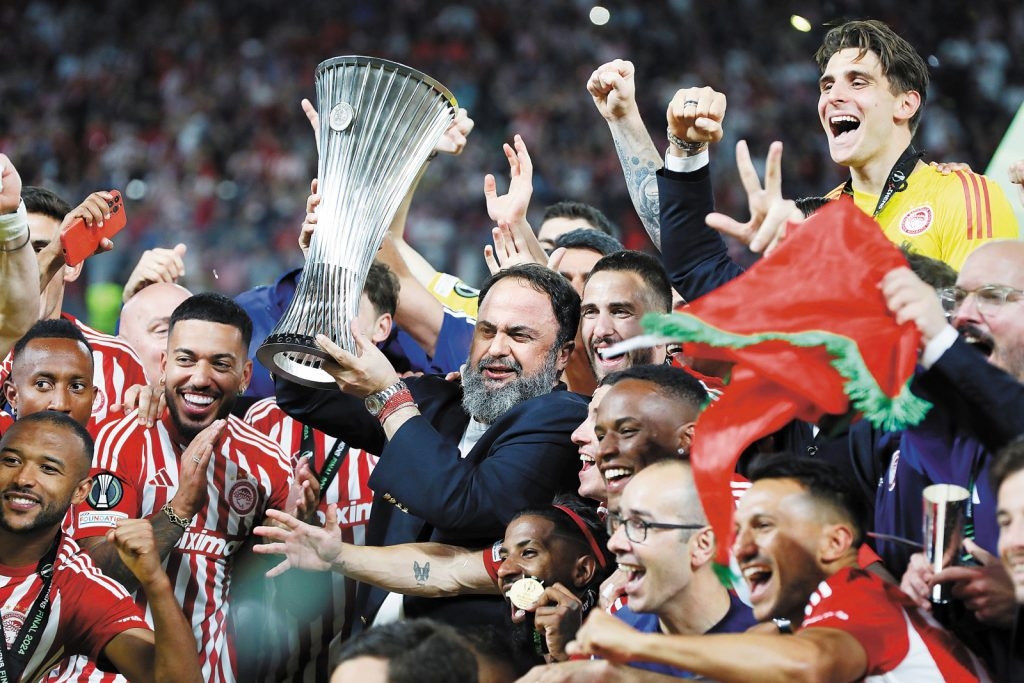In the summer of 1972, Panagiotis Kelesidis left northern Serres and its local team to travel south to the port of Piraeus, where he will become one of the most popular Olympiacos goalkeepers of all time. He grew up in the countryside, and when he was a boy, his father used to throw watermelons to him which he had to catch—if they fell and broke, they’d be worth nothing; well, not a single watermelon was ever lost on his watch!
At that time, good players from northern Greece generally played for one of the Thessaloniki teams, and Kelesidis had received an offer from PAOK. But Olympiacos was too hard to resist. The Reds’ coach, Lakis Petropoulos, needed him under the goal posts of the great “Goulandris team”, as the squad that won three championships and two Greek Cups between 1972 and 1975, as well as succeeding a Panathinaikos squad that had played in Wembley atop the Greek football’s pantheon.
To this day, Kelesidis, who went on to enjoy an outstanding career as a goalkeeping coach, is still awestruck at the memory of that team-in-a-million—which he was honored to play with, and which he honored with his presence in turn.
“The president was the secret of our success. We all played for his sake: he was the team’s Alpha and Omega. He didn’t involve himself much in the administration, but he was a very wealthy man and an Olympiacos fan to the bone, a guy who truly loved the club, that spurred us on to play for the red and white jersey and the fans,” he said in an interview a few years ago. He added: “I once asked him for 600 thousand to buy a car, and he wrote me a cheque. I went to the bank to cash it and realized he’d made it out for a million. I took the extra four hundred thousand and brought it back to him. He told me to keep it, because he had never met a more foolish man than me. You couldn’t not love Goulandris.”
Unconventional, a true Pontian and a great goalkeeper, he was greatly loved. Legendary Greek sportscaster Giannis Diakogiannis called him the Greek ‘Gordon Banks’
A proud Pontian
Kelesidis’ family roots were on the southern coast of the Black Sea, meaning he was a “Pontios” or Pontian, and he would always say “We’re a tough lot, us Black Sea Greeks—we don’t let anything stop us.” Generosity was the hallmark of his game. As he recounts in his biography, which was published a few years ago under the title The Lion of Olympiacos, it was during a derby against Panathinaikos at their home ground on Alexandra Avenue in December 1972 that the fans took him into their hearts. It was a crucial game in the championship and, being a new team, Olympiacos desperately wanted a win, so it could start to believe in itself. This was in Kelesidis’ first season at Olympiacos, the fans had taken to calling him “Kefala” (meaning ‘mule’, as in stubborn as one), and the new goalkeeper was waiting for a big game to show them what he could do. He couldn’t have timed it better. “In the first minutes of the game, I made an impressive save which really boosted my confidence. Olympiacos were amazing throughout the game. Early in the first half, in the 17th minute, Roman Argyroudis scored a goal the like of which Greeks football fans had never seen before. It was an incredible curling shot, struck with the outside of his boot. Our fans went wild and celebrated like crazy in the stadium. After the goal, Panathinaikos piled on the pressure, giving us no breathing room at all. We took courage from each other. Glezos and Siokos kept up the encouragement, “Bravo, Mule” they told me every time I did something right. At half time, the coach, Lakis Petropoulos, said this to me: “Mule, I’m counting on you, because you’ve done great so far.” “Don’t worry, Mr. Lakis, I’m not letting anything past me today,” I replied. And when full time came, we’d held on to our 1-0 lead. It was the start of an incredible 58-game unbeaten streak for Olympiacos, which would win them three consecutive championships.

Kelesidis was also a hero in a penalty shoot-out against PAOK, which ended 6-5 in Olympiacos’ favor (2-2 in regular time) during the quarterfinals of the 1979 Cup. He had dozens of truly great moments.
Three players in attack
Kelesidis is very proud of the team he honored with his presence, and rightly so. “That team was ahead of its time and would play an all-out attacking game. We often fielded three strikers, with Delikaris in the starting line-up and the full-backs moving up into midfield to play their part in the attack. We were doing things on the pitch back then which other teams would try to copy later. For example, we had a really strong squad with enough top players for two teams. This allowed our coach to select the players who were in the best shape for each match. I mean, we had players like Kostas Aidiniou on our bench, who would have been in the starting line-up in any other teams in Greece,” he recalls. Having earned the fans’ affections that afternoon in December 1972 away to Panathinaikos, Kelesidis would remain a firm favorite with the stands for all the seasons he played for Olympiacos. The team—and his—secret was simple: they always kept their cool. As long as they stayed calm, given Petropoulos’ skill at managing difficult characters, the players never fell out among themselves. “He was the right man in the right place, mainly because he was a great diplomat. For example, when he put Lefteris Poupakis in goal, it never crossed my mind to protest. I feel I owe Petropoulos a lot, because he invited me to join the Greek national team when I was still playing in Serres, and then brought me to Olympiacos,” he says.
Kelesidis was also a hero in a penalty shoot-out against PAOK, which ended 6-5 in Olympiacos’ favor (2-2 in regular time) during the quarterfinals of the 1979 Cup. He had dozens of truly great moments.
Mr. Popular
Kelesidis’ is an interesting case, because although he played in one of the most attacking Olympiacos sides of all time, he was hugely popular despite not being part of that goal-scoring offensive machine. “”The 102-goal championship” will never be repeated. But even then, when the games were getting started, Kelesidis always had to make one or two saves to save the day,” he says, explaining why the fans loved him. He went on to add: “Don’t forget that that particular Olympiacos team also holds the record for the best defense. In the 1972-73 season, we conceded a grand total of 13 goals, and only 14 in the season after that! It was the ideal all-round team, and we may well have been ahead of our time.” His big complaint is that their glory days ended too soon. “Goulandris left after our match against Anderlecht in Patras for the Champions Cup, which we won but went out anyway. He was bitter because he’d found out his associates were cheating him. Some conmen made fortunes with his money and, when he was gone, they made fools of us. The discipline was gone, we relaxed, we lost our leader and Olympiacos was soon slipping down the league table. If Goulandris had stayed and had had better partners, that team would definitely have distinguished itself in Europe, too,” he believes. But their lack of success in Europe is really his only complaint.
The derby with Panathinaikos in December 1972 was the beginning: a great performance, a goal by Argyroudis, and the spark became a flame in the red-and-white football world
Everything seemed so easy
Of course, he has one more complaint, though this one’s directed at himself. He admits he wasn’t exactly a model professional. He came to Athens when he was still very young, he enjoyed the nightlife and would go out more than he should have—because, as he writes in his memoires, everything just seemed so easy. In 1979, he played the last truly great game of his career, this time in the colors of the Greek national team. He was impeccable and impossible to score against in a match against a very strong Hungary at the Népstadion. Thanks to his efforts, the national team escaped with a goalless draw and gained an advantage which would earn it its first ever ticket into the finals of the Euro, for which only eight teams qualified at that time. The Greek coach, Alketa Panagoulias, promised to include him in the team if they qualified, just as long as he was playing for a championship team. But Kelesidis left Olympiacos, where he’d lost his place in the starting line-up due to an injury, and transferred to Proodeftiki, where he ended his career. And that’s how he ended up watching the Euro finals in Italy—a tournament Greece was playing in largely due to his heroic efforts—on the TV in his home.
A true Pontian who did things his own way, a great goalkeeper and a man who wore his heart on his sleeve, Kelesidis was adored like few other players. His many impressive feats include saving not one but two penalties in a match between Olympiacos and Tottenham in September 1972; both were taken by the same player, Martin Peters. From that day on, Yannis Diakogiannes referred to him as “the Greek Gordon Banks”.
